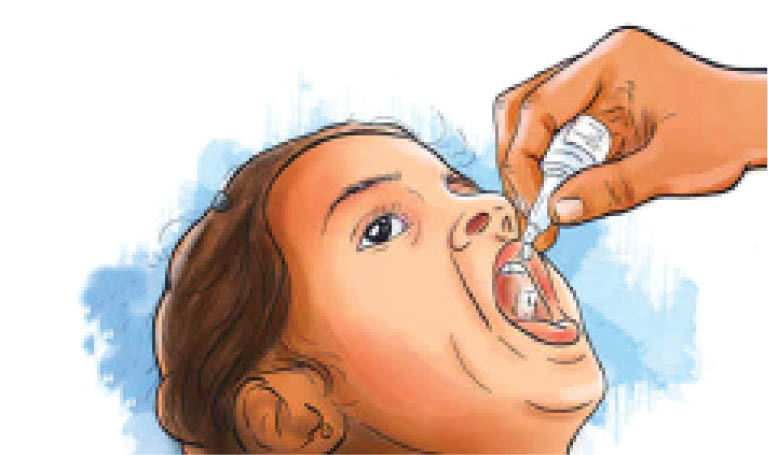Nigeria records the highest number of under-five deaths as a result of vaccine-preventable diseases.
According to UNICEF, about three out of 10 under-five deaths are caused by diseases such as pneumonia, diarrhoea and tetanus for which there are vaccines.
The 2018 Nigeria Demographic and Health Survey (NDHS) shows that only 31 per cent of children aged 12 to 23 months have received all eight basic vaccinations – one dose each of BCG (against tuberculosis), and measles vaccine, and three doses each of DPT-HepBHib (against diphtheria, whooping cough, tetanus, Hepatitis B etc), and polio vaccine.
The survey revealed that less than half of children have received the third dose of polio, adding that nearly one in five children have received no basic vaccination.
Experts say immunisation provides protection to help children fight diseases and disability in early life thereby saving their lives.
Despite this, till date some communities and parents still refuse to allow their children to be immunised or get the necessary jabs against vaccine-preventable diseases.
While expressing concern with the high rate of under-five mortality in Nigeria despite global decline, the National Association of Community Health Practitioners of Nigeria (NACHPN) said one quarter of the deaths could be prevented through vaccination.
The National President of the association, Comrade Kabir Yahaya Ahmed, said it was also important to ensure every child in hard-to-reach communities was vaccinated.
Dr Uche Ewelike, a public health physician and health economist, said communities should embark on good immunisation practices by mobilising a comprehensive vaccination for children of zero to five years as “herd effect” of vaccines also protected the communities, thereby making them healthier and improved the quality of life in such communities.
Dr Ewelike said, “Parents should also know that it is morally sound, economically better and parentally protecting to have your children immunised.
“This will save them from incessant visits to hospital for treatment of vaccine-preventable diseases and reduce the regressive out-of-pocket payment that makes the family poorer. If we must have better families, communities and nation’s productive workforce, we must pay adequate attention to immunisation in this country.”
Hajiya Miriam, a mother of three, said she ensured all her children received all the jabs for routine immunisation. She said this had made them very healthy and that had not had cause to frequent the hospital as they rarely fell sick.
According to Prof Enobong Ikpeme, a paediatric nephrologist at the University of Uyo and consultant paediatrician at the University of Uyo Teaching Hospital, there is need for increased coverage of routine immunisation across the country; particularly in rural and hard-to-reach areas.
According to UNICEF, vaccines help protect children and adolescents from serious, often fatal illnesses, and that the vaccines recommended by most governments and doctors to keep children and populations safe from outbreaks are BCG for tuberculosis, Hep B for hepatitis, polio for poliovirus, DTP for diphtheria, DTP for tetanus, DTP for pertussis, Hib for haemophilus influenza Type B (Hib), pneumococcal for pneumococcal diseases, rotavirus for rotavirus, HPV for human papillomavirus and MMR for measles, mumps and rubella.

 Join Daily Trust WhatsApp Community For Quick Access To News and Happenings Around You.
Join Daily Trust WhatsApp Community For Quick Access To News and Happenings Around You.


